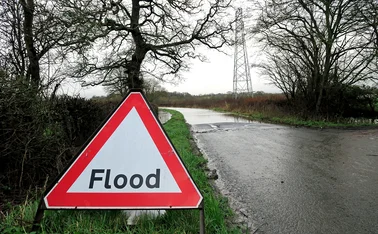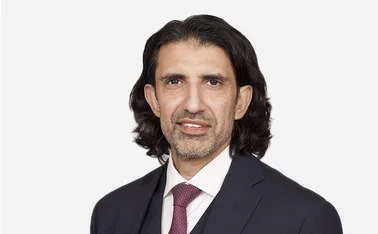
Post Blog: Haste & Guardiola - Why Chelsea have more chance of getting their man than Aviva

The current scramble for new managers at top football clubs Chelsea and Liverpool draws a parallel with Aviva's hunt for a new CEO.
Most notable is the question of how much control these managers will ultimately wield over the teams they inherit, with regards to transfer policy and ultimate strategy and direction, if they have to work under a ‘director of football' or some other exalted senior figure.
And then there is the supporter unrest. Both Aston Villa and Blackburn Rovers fans have openly expressed opinions suggesting they will not renew their season tickets unless they are happy with the new manager or the existing manager is sacked.
This all brings to mind Aviva's current search for a new chief executive. Firstly, from the point of view of how much control he or she will ultimately wield over the business, alongside newly appointed executive deputy chairman John McFarlane. As it stands, McFarlane will effectively become both chairman (the role he joined Aviva to fill) and acting CEO come July.
The second footballing parallel regards the straw that broke the camel's back, in terms of CEO Andrew Moss' departure. For ‘supporter unrest', read ‘shareholder revolt' and the events at the Barbican earlier this month when 54% voted against the proposed executive pay deals, prompting Moss to fall on his sword.
A third similarity centres on the personalities that have publicly ruled themselves in or out. According to third parties, it would seem one of the most likely candidates for Aviva chief - former RSA CEO Andy Haste - has indicated he is not interested; while other potential runners and riders, such as former Aviva directors Patrick Snowball and Mark Hodges, look to be happy with their current lots, at Suncorp and Towergate respectively, having received the expected head-hunting calls.
A lifetime banker, McFarlane spent 35 years working for Australia and New Zealand Banking Group, Standard Chartered and Citicorp/Citibank, and is evidently keen to make his mark on the business. "Aviva is a leading company in the insurance sector and I'm excited to play a pivotal role in its transformation and future. I feel I can make a real difference," he said at the time of Moss' departure.
This ‘pivitol role' includes carrying out an "in-depth thorough review of all Aviva's businesses and investments" and "creating value through a profit improvement programme seeking revenue growth where available".
Reading between the lines, this may mean whoever takes over is going to be asked to have little strategic input other than filling in the dots of a blueprint previously laid out by McFarlane. Already there have been rumours this could include a US exit, the sale of Asian assets and a split of the life and general insurance businesses, all of which spells great uncertainty.
It is no surprise, that the likes of Haste are not openly courting the media to express an interest in the Aviva job. Meanwhile, in footballing circles, we have seen former Barcelona manager Pep Guardiola go from saying he would like a rest, to hinting he may be interested in the Chelsea position.
As a lifetime banker, McFarlane is expected to want an experienced ‘insurance person' to take over as CEO. But, given those who have apparently ruled themselves out, this raises the interesting question. Who is left that could do the job?
Both Standard Life and Legal & General have instigated widespread searches in recent years, both of which led to the internal appointments of Paul Matthews (as UK CEO) and Nigel Wilson (as group CEO). It would appear there might now be a similar dearth of highly valued external candidates out there, or even rough diamonds - in 2003, Haste was largely unheralded when he left Axa Sun Life to join RSA.
So while analysts may have expressed a desire for an outsider, the current thinking is those within the group have as good a chance as any of becoming CEO.
One industry insider described the former CEO/chairman double act of Moss and Lord Sharman as the "Laurel and Hardy" of the insurance market, especially given the divergent fortunes of Aviva's share price to that of Prudential - the group it tried to buy in 2006 - in their lifetimes at the group.
What might make it especially galling for Aviva shareholders is that Prudential is run by a CEO and CFO in Tidjane Thiam and Nic Nicandrou - both of whom previously worked for Aviva.
Chelsea may soon get a 'Pep' up. Aviva is unlikely to get the same boost with any haste.
Only users who have a paid subscription or are part of a corporate subscription are able to print or copy content.
To access these options, along with all other subscription benefits, please contact info@postonline.co.uk or view our subscription options here: http://subscriptions.postonline.co.uk/subscribe
You are currently unable to print this content. Please contact info@postonline.co.uk to find out more.
You are currently unable to copy this content. Please contact info@postonline.co.uk to find out more.
Copyright Infopro Digital Limited. All rights reserved.
As outlined in our terms and conditions, https://www.infopro-digital.com/terms-and-conditions/subscriptions/ (point 2.4), printing is limited to a single copy.
If you would like to purchase additional rights please email info@postonline.co.uk
Copyright Infopro Digital Limited. All rights reserved.
You may share this content using our article tools. As outlined in our terms and conditions, https://www.infopro-digital.com/terms-and-conditions/subscriptions/ (clause 2.4), an Authorised User may only make one copy of the materials for their own personal use. You must also comply with the restrictions in clause 2.5.
If you would like to purchase additional rights please email info@postonline.co.uk








